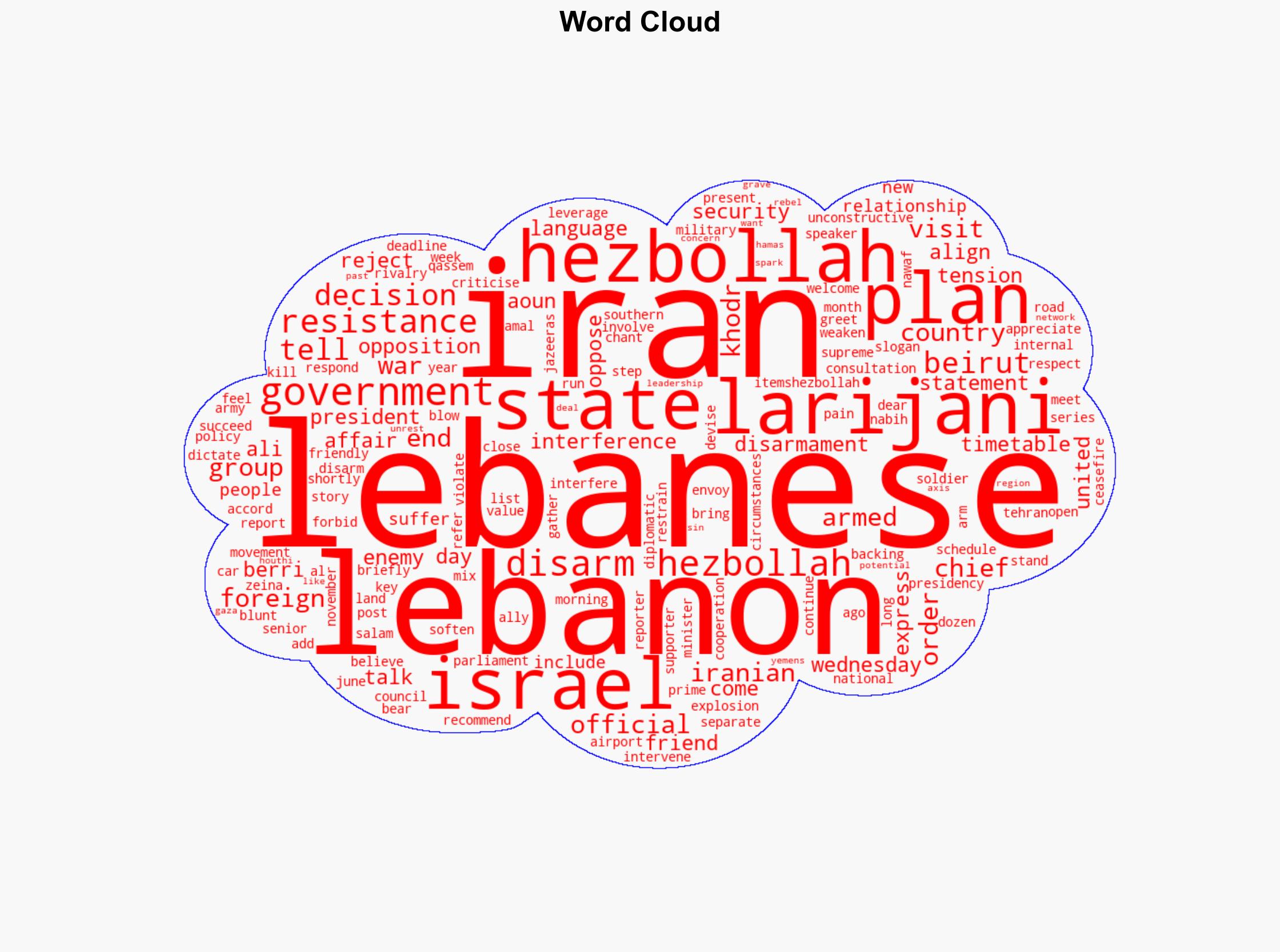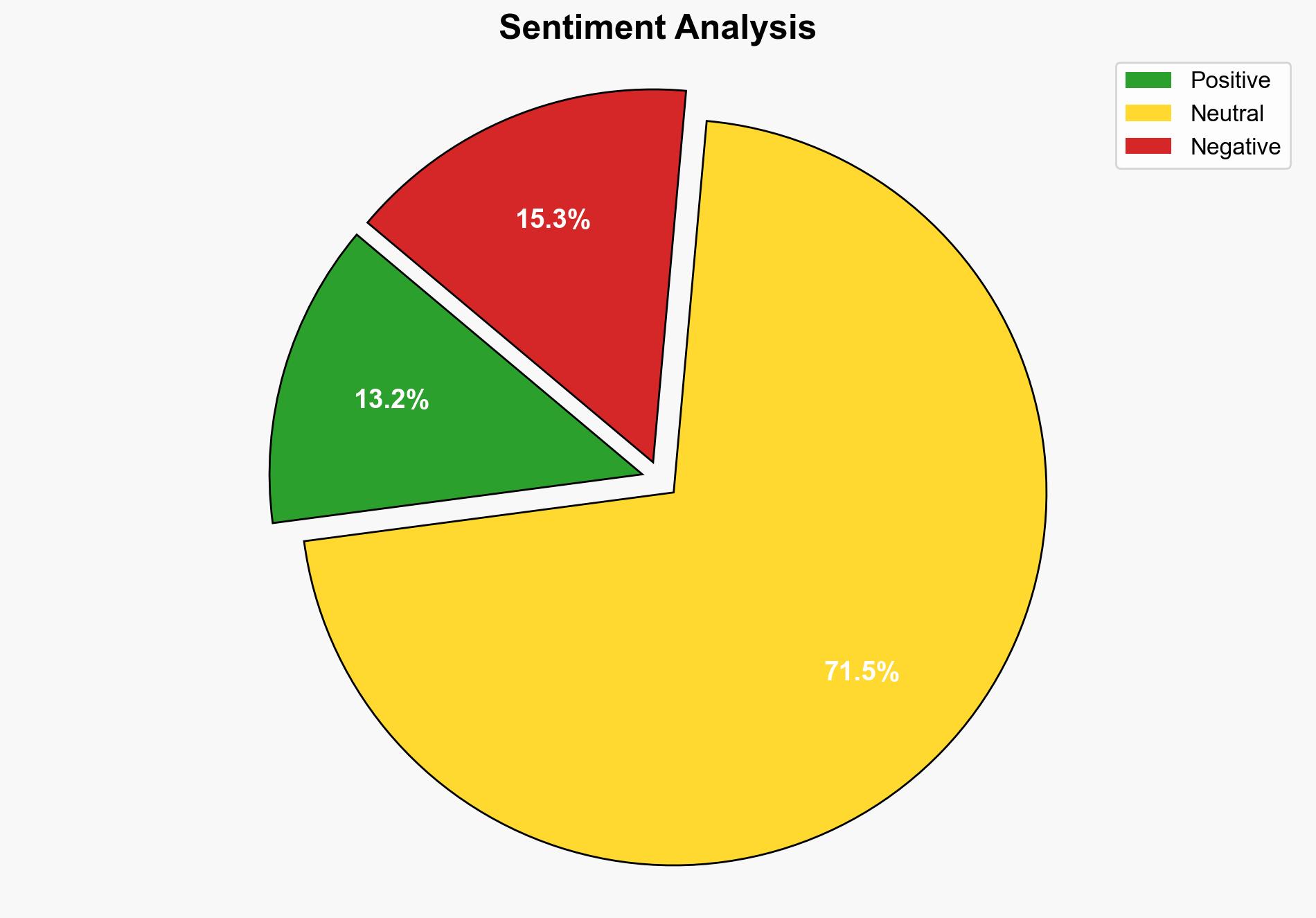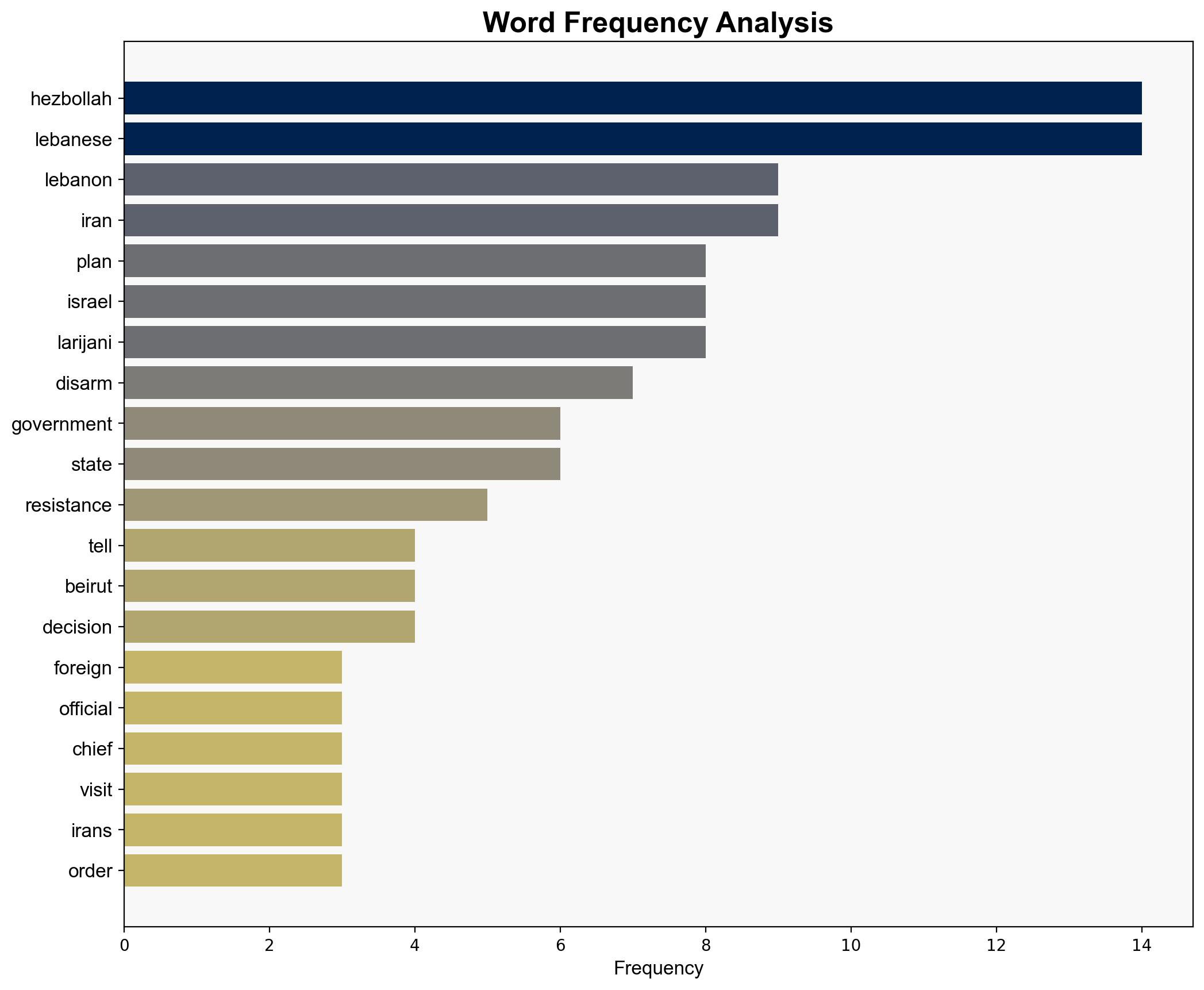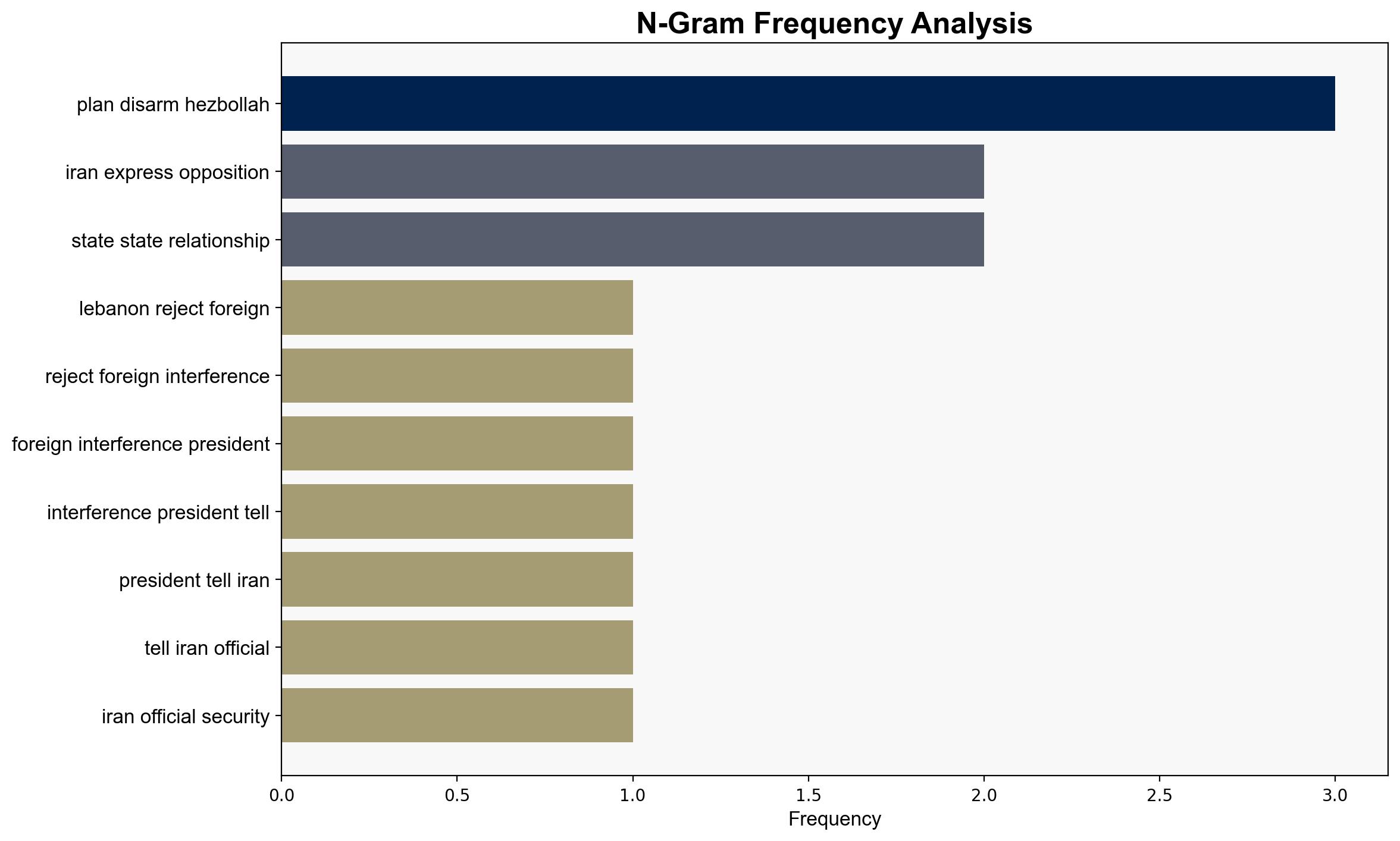Lebanon rejects foreign interference president tells Iran official – Al Jazeera English
Published on: 2025-08-13
Intelligence Report: Lebanon rejects foreign interference president tells Iran official – Al Jazeera English
1. BLUF (Bottom Line Up Front)
Lebanon’s rejection of foreign interference, particularly from Iran, regarding its internal security decisions, notably the disarmament of Hezbollah, indicates a strategic pivot towards asserting national sovereignty. The most supported hypothesis suggests Lebanon is attempting to balance its internal political dynamics while managing external pressures. Confidence level: Moderate. Recommended action: Monitor Lebanon’s diplomatic engagements and military developments for shifts in regional alliances and internal stability.
2. Competing Hypotheses
1. **Hypothesis A**: Lebanon’s government is genuinely seeking to disarm Hezbollah to assert national sovereignty and reduce foreign influence, particularly from Iran.
2. **Hypothesis B**: Lebanon’s public stance against foreign interference is primarily rhetorical, aimed at placating international observers while maintaining the status quo with Hezbollah and Iran.
Using ACH 2.0, Hypothesis A is better supported by Lebanon’s explicit orders to the army to devise a disarmament plan and the president’s public statements. However, Hypothesis B is supported by historical ties and the complexity of internal Lebanese politics, which often involve balancing various factions.
3. Key Assumptions and Red Flags
– **Assumptions**: It is assumed that Lebanon’s government has the capacity and intent to disarm Hezbollah without significant internal backlash. Another assumption is that Iran’s influence is primarily negative and unwanted by Lebanon.
– **Red Flags**: The presence of Hezbollah supporters at the airport and the historical resilience of Hezbollah suggest potential underestimation of internal support for the group. The lack of a clear timeline for disarmament raises questions about the feasibility and intent of the government’s plan.
4. Implications and Strategic Risks
– **Geopolitical Risks**: Lebanon’s actions may strain its relations with Iran, potentially leading to increased regional tensions or proxy conflicts.
– **Internal Stability**: Efforts to disarm Hezbollah could lead to internal unrest or conflict, given the group’s significant influence and support base.
– **Economic Impact**: Prolonged instability could deter foreign investment and exacerbate Lebanon’s economic challenges.
5. Recommendations and Outlook
- Monitor Lebanon’s military actions and political rhetoric for signs of genuine progress or backtracking on disarmament.
- Engage with regional allies to support Lebanon’s sovereignty while preparing for potential unrest.
- Scenario Projections:
- Best: Successful disarmament leads to increased stability and economic recovery.
- Worst: Failed disarmament attempts result in civil unrest and regional conflict.
- Most Likely: Partial disarmament with ongoing political maneuvering and external influence.
6. Key Individuals and Entities
– Michel Aoun
– Ali Larijani
– Nabih Berri
– Hezbollah
– Iranian Government
7. Thematic Tags
national security threats, regional focus, geopolitical dynamics, internal stability





